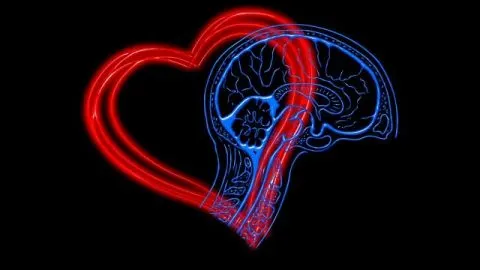Emotional Intelligence (EI) is the ability to recognize, understand, manage, and influence our emotions and the emotions of others. For empaths, who are naturally attuned to the feelings of those around them, developing EI can be a powerful tool in navigating conflicts and creating harmonious relationships. In this article, we'll explore the connection between emotional intelligence and conflict resolution, providing strategies to help empaths manage disputes effectively and maintain their emotional well-being.
Understanding Emotional Intelligence
What is Emotional Intelligence?
Emotional Intelligence comprises several key components:
- Self-Awareness: Recognizing and understanding your own emotions.
- Self-Regulation: Managing and controlling your emotional responses.
- Motivation: Harnessing emotions to pursue goals with energy and persistence.
- Empathy: Understanding and sharing the feelings of others.
- Social Skills: Managing relationships to move people in desired directions.
RELATED: 11 Signs of Genuine Intelligence That You Just Can't Fake
Why is EI Important in Conflict Resolution?
Conflicts are an inevitable part of human interactions, whether in personal relationships, workplaces, or social settings. EI helps in:
- Recognizing Emotional Triggers: Understanding what triggers conflicts and how emotions play a role.
- Managing Reactions: Controlling impulsive reactions and responding calmly.
- Understanding Others: Empathizing with the perspectives and emotions of others involved in the conflict.
- Effective Communication: Expressing thoughts and feelings clearly and respectfully.
The Role of Empathy in Conflict Resolution

Empathy, a core component of EI, is particularly relevant for empaths. It allows them to:
- Connect on a Deeper Level: Understanding the underlying emotions behind someone's words or actions.
- De-escalate Tension: By acknowledging and validating others' feelings, empaths can reduce the intensity of conflicts.
- Build Trust: Empathy fosters trust, making it easier to resolve disputes amicably.
I remember a time when a colleague and I had a misunderstanding about a project deadline. My initial reaction was frustration, but by taking a step back and tapping into my empathic abilities, I realized he was under immense personal stress. A simple, empathetic conversation not only cleared the air but also strengthened our working relationship.
When dealing with someone who lacks emotional intelligence (EI), conflict resolution becomes significantly more challenging.
Such individuals often struggle to recognize and regulate their own emotions, fail to empathize with others, and may react impulsively or defensively. This can lead to heightened tensions, misunderstandings, and prolonged disputes.
To work around this, it's essential to employ strategies that compensate for their deficiencies. Start by maintaining your composure and setting a calm tone for the discussion. Use clear, straightforward language and avoid emotionally charged words. Focus on facts rather than feelings to keep the conversation objective.
Additionally, actively listen to their perspective to validate their feelings, even if they aren't expressed constructively. This approach can help de-escalate the situation and create a more productive dialogue, ultimately leading to a more amicable resolution.
Strategies for Empaths in Conflict Resolution
1. Practice Active Listening
Active listening involves fully concentrating, understanding, responding, and remembering what the other person is saying.
- Give Full Attention: Put aside distractions and focus on the speaker.
- Reflect and Clarify: Repeat back what you’ve heard to confirm understanding.
- Show Empathy: Validate their feelings without immediately jumping to solutions.
2. Manage Your Emotions
Self-regulation is crucial in maintaining composure during conflicts.
- Take a Pause: If you feel overwhelmed, take a moment to breathe and collect your thoughts.
- Identify Triggers: Be aware of what specifically triggers your emotional responses.
- Use Calming Techniques: Techniques like deep breathing, counting to ten, or visualizing a peaceful scene can help.
During a heated family discussion, I felt my emotions rising. Instead of reacting defensively, I excused myself for a few minutes, practiced deep breathing, and returned with a calmer mindset. This approach helped me communicate more effectively and resolve the conflict peacefully.
3. Communicate Clearly and Assertively
Effective communication is key to resolving conflicts.
- Use “I” Statements: Express your feelings and thoughts without blaming others. For example, “I feel upset when deadlines are missed because it affects our project timeline.”
- Be Honest and Direct: Avoid beating around the bush. State your needs and concerns clearly.
- Stay Respectful: Maintain a respectful tone, even if the other person becomes confrontational.
4. Seek Common Ground
Finding a middle ground can transform conflicts into collaborative problem-solving.
- Identify Shared Goals: Focus on what both parties want to achieve.
- Be Open to Compromise: Flexibility can pave the way for mutually beneficial solutions.
- Encourage Collaboration: Work together to brainstorm solutions that satisfy both parties.
The Importance of Self-Care

For empaths, conflict resolution can be emotionally taxing. It's essential to prioritize self-care:
- Set Boundaries: Limit the amount of emotional energy you invest in conflicts.
- Practice Regular Self-Care: Engage in activities that recharge your emotional batteries, such as meditation, nature walks, or creative pursuits.
- Seek Support: Talk to trusted friends or a therapist about your experiences and feelings.
After a particularly draining conflict at work, I made it a point to spend the weekend indulging in my favorite hobbies and spending time with supportive friends. This self-care routine helped me recover emotionally and return to work with a renewed sense of balance.
Final Thoughts
For empaths, navigating conflicts can be challenging but immensely rewarding with the right strategies in place. By leveraging emotional intelligence, practicing active listening, managing emotions, communicating effectively, and prioritizing self-care, empaths can transform conflicts into opportunities for growth and stronger relationships.
Remember, your empathic abilities are a gift that can help you navigate conflicts with grace and compassion. With practice, you can turn even the most challenging interactions into positive experiences.
❤️ To learn more about other empathic strengths and abilities, check out these articles:
- The 5 Powerful Abilities That Empaths Should Strive To Channel
- Here's Why Empaths Become Drained Around Certain People
- 15 Signs Your Partner Lacks Empathy
- 7 Signs You Were the “Empathic” Listener Among Friends
Alan is the founder of Subconscious Servant. He has a passion for learning about topics such as spirituality and the metaphysical world. The thing he loves to explore most though is manifesting with the law of attraction ✨.

